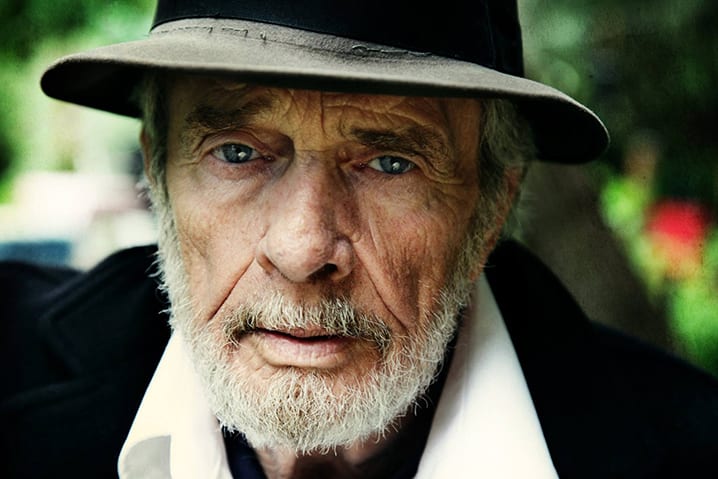
A Remembrance
Merle Haggard first became part of my life in the mid-80s, when as a record store clerk in Washington DC, I was given tickets to see him and George Jones at the Kennedy Center, of all places.
I was already a fan. I loved his early records and was aware of his influence on country rock like the Dead and the Burrito Brothers, but I didn’t know his 80s music and wasn’t aware of his then-recent hits that I would later obsess over, like Big City, and Are The Good Times Really Over. To be honest, I may have been more excited to see George Jones at that point because I was more into R&B then, and George had that voice…. Or so I thought….
Merle was absolutely sublime. His voice may not have had the theatrical power of Jones, but it was rich with shade and nuance… his phrasing as smooth and playful as a Lester Young solo. The band just simmered and shimmered behind him, his voice floating out front. Classic country riffs meshed with modern jazz guitar, electric piano, and occasional Dixieland horns, always relaxed, but just syncopated enough …and a Satie-like attention to space. Many of his honky-tonk classics were transformed into soulful meditations (I remember thinking that something about him reminded me of Al Green that night), and his forays into Texas swing were a revelation.
It turned out this guy wasn’t just a songwriting legend, but a true musical melting pot. Those great songs just got you in the door, but he had a real sense of purpose with his performance that night, and in fact, every other time I’ve seen him since (which was a lot!)
Flash forward about 30 years to the last time I saw Merle, in Albuquerque last summer. (Anti did a couple of records with him back in the early 00’s, and it was one of the best experiences of my professional life. He made great albums, was funny as hell, and just lived and breathed music.)
Anyway, I was in Albuquerque trying to re-sign Merle, as I had a few times over the years, and we’re sitting in his bus talking about what kind of record he might want to make. I asked him what, if anything, was important to him for his next album, and he said “I don’t want to use too much compression & I don’t want the kick drum too loud.”
I wasn’t quite sure what to make of that at the time… I was wondering “does he not care?”, “did he just have a bad experience with an engineer?”…”was he messing with me?” - I had no idea, but it became clear that night when he played.
I was standing next to the sound man watching the backup band do a couple of warm up numbers. They sounded great, as usual… loose and rockin’. Everyone stretching out…. The soundman turns to me and says, “Check out what happens when Merle comes out on stage. Check out the band’s dynamics…. Check out the kick drum (?!)”.
Sure enough, Merle hits the stage and the band’s volume cuts in half. They go from goodtime roadhouse band to something very similar to what I saw way back in DC… Pastoral, soulful, and subtly complex… Most of the players were different from back then, but Merle’s vision and musicality pulled them laconically into his sphere. His voice was as great as ever… the Bob Wills stuff might have been even stronger than before.
So I’m listening to this amazing show taking in the dynamics of the group coming off of the stage and I realized --that was what he was talking about on the bus! The compression and big drum sounds in modern music kill the unique, subtle and dynamic musical interplay that Merle worked so hard to perfect over so many years.
I know a lot of people who care about that stuff, but it’s extremely rare to come across an artist who has been around for that long who is not be jaded about such details. In his late 70s, this guy still had a concise aesthetic vision that he believed in and fought to preserve his whole life. It wasn’t about a particular style or genre. It was just his way of approaching music.
Even though he was, of course, very proud of the tradition, Merle didn’t feel locked in by Country. He used to tell me that he thought of himself as a jazz artist or a blues artist…. He once said: “…you can call me a world music artist, and the part of the world that I represent is the American south!” … I guess when it comes down to it, no matter what kind of artist any of us think he was, we can all agree that he was a true artist.
Andy Kaulkin
President, ANTI- Records